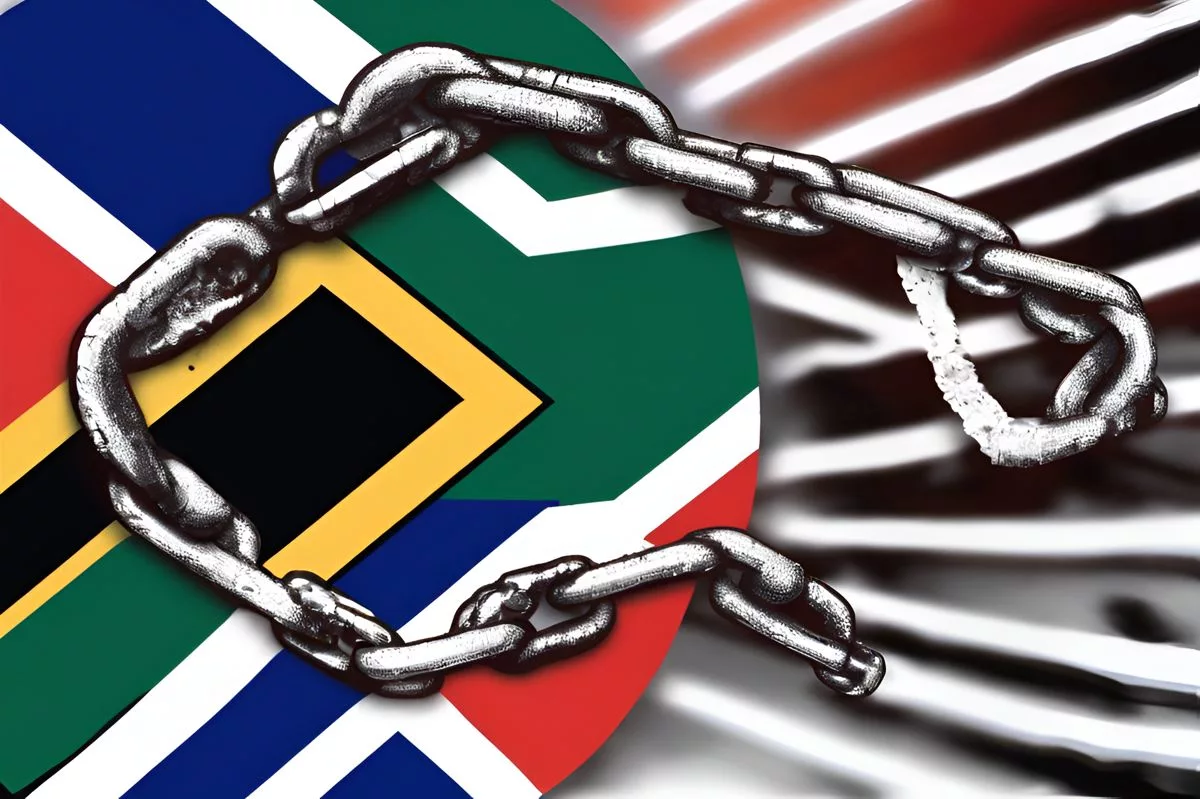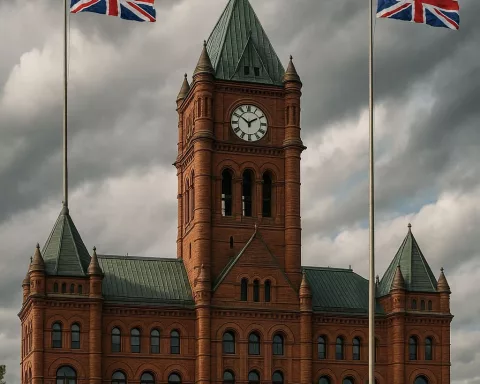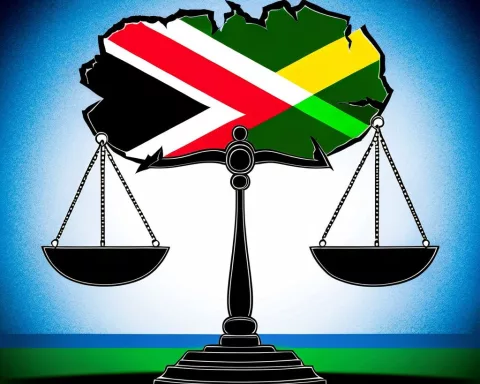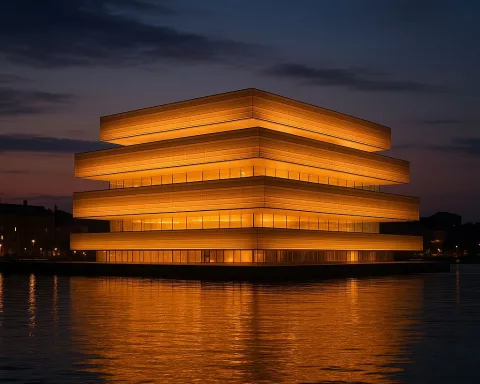Jabulani Khumalo is a controversial figure in South African politics, known for his dramatic rise and fall within the MK Party. He started with big dreams of unity but faced harsh battles, including his expulsion from the party and a fierce struggle over its assets. Khumalo accused former President Jacob Zuma of trying to take over the party, leading to a messy legal fight that caught national attention. His story reflects the messy world of politics, showing how power struggles and disagreements can shake even the most hopeful leaders.
What are the key controversies surrounding Jabulani Khumalo in South African politics?
Jabulani Khumalo’s political journey is marked by significant controversies, including his expulsion from the MK Party, financial struggles over party assets, and allegations against former President Jacob Zuma for a hostile takeover. These issues reflect broader themes of power struggles and ideological conflicts in South African politics.
A Visionary’s Beginning and Early Turmoil
Jabulani Khumalo stands as one of the most polarizing figures in South African politics. His story, marked by idealism and contentious disputes, began in 2023 when he launched the uMkhonto weSizwe (MK) Party. Khumalo’s vision for the party emphasized unity and integrity, serving as a rallying point for his initial supporters. Yet, the political landscape soon proved to be treacherous.
The establishment of the MK Party was Khumalo’s attempt to carve out a new political path, focusing on the principles he deemed crucial for South Africa’s progress. Despite a promising start, his journey quickly encountered significant obstacles. The political arena, fraught with power struggles and ideological battles, became a challenging environment for Khumalo to navigate.
Khumalo’s leadership faced its first significant challenge when the MK Party’s hierarchy decided to expel him and several close allies, including Ray Khumalo, Bheki Manzini, Lebo Moepeng, and Rochelle Davidson. This expulsion, timed just before the pivotal 29 May elections, was presented as a move to safeguard the party’s integrity by removing what the leadership referred to as ‘rogue elements.’ The decision underscored the internal conflicts and ideological rifts that plagued the party from its inception.
Financial Struggles and Legal Battles
Despite his expulsion, Khumalo did not retreat quietly. He fought to maintain control over the party’s financial assets, particularly the Standard Bank account he had opened. This account, vital for the party’s operations, became a battleground in the power struggle. Khumalo’s refusal to relinquish control led to the freezing of the account, highlighting the escalating tensions within the MK Party.
On 23 September, the Gauteng High Court in Pretoria delivered a significant blow to Khumalo. The court’s ruling mandated Standard Bank to remove him as a signatory, effectively cutting him off from the party’s financial resources. Additionally, Khumalo was ordered to cover the legal costs incurred by the MK Party, a decision that underscored the judiciary’s role in resolving political conflicts.
Khumalo’s legal defeat did not end his quest for influence. Instead, it marked the beginning of another chapter in his tumultuous political journey. Accusations against former President Jacob Zuma added another layer of complexity to the saga. Khumalo claimed that Zuma orchestrated a hostile takeover of the MK Party, alleging that a clandestine meeting had taken place where Zuma declared himself the new president. This accusation not only intensified the internal conflict but also brought national attention to the party’s struggles.
Allegations, Denials, and Political Intrigue
Khumalo’s allegations against Zuma painted a picture of political intrigue and deception. He argued that Zuma’s claim to the presidency lacked due process and was supported by fraudulent documentation intended for the Electoral Commission. Despite recognizing Zuma as the party’s public face during elections, Khumalo never conceded the presidency, sparking a legal battle to invalidate Zuma’s claims.
As Khumalo fought to overturn Zuma’s alleged takeover, the MK Party’s spokesperson, Nhlamulo Ndhlela, offered a starkly different perspective. Ndhlela dismissed Khumalo’s assertions as desperate attempts to cling to power. According to Ndhlela, Khumalo’s legal maneuvers lacked merit, particularly since the issue of the ballot paper had already been resolved. Ndhlela also speculated that external adversaries might be funding Khumalo’s prolonged legal efforts, adding another dimension to the unfolding drama.
While Khumalo awaited the Electoral Court’s decision, his struggle reflected broader dynamics within South African politics. His battle with the MK Party transcended personal grievances, illustrating the intense political struggles that often define leadership and governance in the country. Khumalo’s story resonated with historical instances of political purges and reformations, drawing parallels to tumultuous periods in global political history.
Historical Parallels and Cultural Significance
The turmoil within the MK Party echoed historical patterns of ideological purges seen in various political movements. The party’s decision to expel Khumalo and his allies mirrored the quest for ideological purity that has driven many political and artistic movements throughout history. From the French Revolution to the ideological cleansings within the Communist Party of the Soviet Union, such actions often lead to significant internal strife and redefinition.
Khumalo’s narrative also fits the archetype of the ousted leader who continues to exert influence despite being removed from power. His determination to stay connected to the party’s financial resources, even after expulsion, evoked memories of historical figures like Julius Caesar, who fought to maintain influence despite political setbacks. Khumalo’s struggle symbolized the enduring conflict between ideals and power within political movements.
The MK Party itself carries a legacy that adds depth to Khumalo’s story. Named after the armed wing of the African National Congress (ANC) during the apartheid era, the party embodies a history of resistance and liberation. This legacy juxtaposes contemporary political disputes with the broader historical struggle for justice and equality, adding complexity to the ongoing internal conflict.
Jabulani Khumalo’s journey with the MK Party is a testament to the multifaceted nature of political leadership and dissent. His story, rich with personal and political conflicts, offers valuable insights into the broader narratives of power, ideology, and resistance that shape South African politics. The events surrounding his expulsion and subsequent legal battles highlight the complexities that leaders and movements face in their quest for legitimacy and influence.
Khumalo’s saga serves as a reminder of the enduring tensions between ideals and power within political movements. It underscores the challenges inherent in striving for ideological purity while navigating the pragmatic realities of political life. As South African politics continues to evolve, the story of Jabulani Khumalo and the MK Party remains a poignant example of the intricate dance between leadership, resistance, and the pursuit of political ideals.
“`markdown
FAQ about Jabulani Khumalo and the MK Party
What led to Jabulani Khumalo’s expulsion from the MK Party?
Jabulani Khumalo was expelled from the MK Party amid internal conflicts and accusations of being a ‘rogue element’ by the party’s leadership. The expulsion occurred just before the crucial 29 May elections and involved several of his close allies, highlighting the ideological rifts within the party.
How did Khumalo respond to his expulsion from the MK Party?
Khumalo did not accept his expulsion quietly. He battled to maintain control over the party’s financial assets, particularly the Standard Bank account crucial for the party’s operations. His legal struggle escalated, culminating in a court ruling that mandated his removal as a signatory on the account, further complicating his political ambitions.
What allegations did Khumalo make against former President Jacob Zuma?
Khumalo accused former President Jacob Zuma of orchestrating a hostile takeover of the MK Party. He claimed that Zuma declared himself the new president during a clandestine meeting and that his presidency was backed by fraudulent documentation intended for the Electoral Commission.
How did the MK Party respond to Khumalo’s allegations?
The MK Party’s spokesperson, Nhlamulo Ndhlela, dismissed Khumalo’s claims as desperate attempts to cling to power. He argued that Khumalo’s legal maneuvers lacked merit and suggested external funding might be supporting Khumalo’s prolonged legal efforts.
What do Khumalo’s struggles illustrate about South African politics?
Khumalo’s struggles highlight the intense power struggles and ideological conflicts that often define South African politics. His narrative reflects broader dynamics within the political landscape, illustrating how personal grievances can transcend into significant political battles, reminiscent of historical political purges.
How does Khumalo’s story resonate with historical political movements?
Khumalo’s story echoes historical instances of ideological purges seen in various political movements, where ousted leaders continue to exert influence despite setbacks. His struggle for power and legitimacy mirrors the complexities faced by historical figures in navigating the delicate balance between political ideals and the reality of governance.
“`












